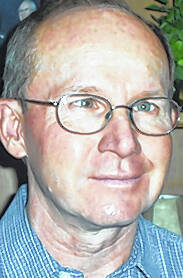
Someone asked me the other day if I had a big New Year’s Eve. When you get to be my age, it means did I stay up to midnight. Well, we did, but just barely. And growing up, New Year’s Eve also wasn’t a big deal, either. News Years Day was the time to get together with family to eat black eyed peas and collards. (We were told black eyed peas were pennies and collards were dollars that you would get in the coming year.) New Year’s Eve were spent primarily watching the ball drop at Times Square on TV at midnight. That’s if you managed to stay up that late.
But, for a couple of years, we did have a New Year’s Eve service at our church. There would be some special music, some congregational singing, and a short message. The church bell would be rung at midnight to celebrate bringing in the new year. Then we would eat. The ladies at Bethabara Methodist Church always knew how to put on a good feed, even after midnight. (In the movie, “Field of Dreams,” the classic line is “If you build it, they will come.” Churches have learned, if you feed them, they will come. Well, maybe.)
As a young Christian, I really enjoyed those New Year’s Eve services. I appreciated the inspiration, fellowship, and, of course, the food. We called those New Year’s Eve services a watchnight service. Watchnight services originated with the Moravians in the early 1700’s. Charles Wesley, the founder of the Methodist Church, adopted the practice in 1740, and it became a part of Methodist tradition. The services were sometimes called Covenant Renewal Services, and were held as an alternative to the usual festivities of New Year’s Eve. But, a few years ago, I learned a watchnight service has a much deeper meaning to many people.
In September, 1862, President Abraham Lincoln issued the Emancipation Proclamation, which was to officially become effective at midnight on January 1, 1863. The executive order would free slaves in the southern states that were still in rebellion during the Civil War. The Proclamation did not automatically free those who were still slaves in border states who were already in the Union. Those states would end slavery in their state by their own laws. The Proclamation gave the Lincoln Administration the legal basis to free the slaves in the areas of the South that were still in rebellion on January 1, 1863. It effectively destroyed slavery as the Union armies advanced south and conquered the entire Confederacy.
On the night of Dec. 31, 1862, during the Civil War, free and freed blacks living in the Union States gathered at churches praying and waiting for President Abraham Lincoln to sign the Emancipation Proclamation into law. So today, many African-American churches hold special services on New Year’s Eve to commemorate that event. It’s not just a countdown to a new year, but a countdown to freedom.
Although President Lincoln issued the Emancipation Proclamation on January 1, 1863, most of those trapped in slavery still weren’t free. Those slaves may have been free legally, but there was still a war to be fought, territory to be taken back, and battles to be won. There would be more years of conflict. Thousands of lives would be lost before the Civil War would be over, and those entrapped in slavery could really be free.
Freedom. A proclamation of freedom from slavery was issued By President Lincoln on January 1, 1863. Two thousand years earlier, another proclamation was made. Jesus declared, “So if the Son sets you free, you will be free indeed.” (John 8:36) Slavery was
common during Jesus’ time. But Jesus wasn’t talking about slavery to a human master. He was talking about being a slave to sin, that sin was the master, and only He could truly set those captives free.
Jesus has made the proclamation. Slaves to sin can now be free. But there are still battles to be fought. Sin does not give up territory easily. But the war has already been won. It was won on the cross. So in 2022, let us fight the battles that are set before us, and take back territories. Then we, and those around us, can truly know what it means to be free.
Mac McPhail, raised in Sampson County, lives in Clinton. McPhail’s new book, “Wandering Thoughts from a Wondering Mind,” a collection of his favorite columns, is available for purchase at the Sampson Independent office, online on Amazon, or by contacting McPhail at [email protected]
"freedom" - Google News
January 08, 2022 at 06:47PM
https://ift.tt/3F5PWNt
A watchnight to freedom - Sampson Independent
"freedom" - Google News
https://ift.tt/2VUAlgg
https://ift.tt/2VYSiKW
Bagikan Berita Ini














0 Response to "A watchnight to freedom - Sampson Independent"
Post a Comment